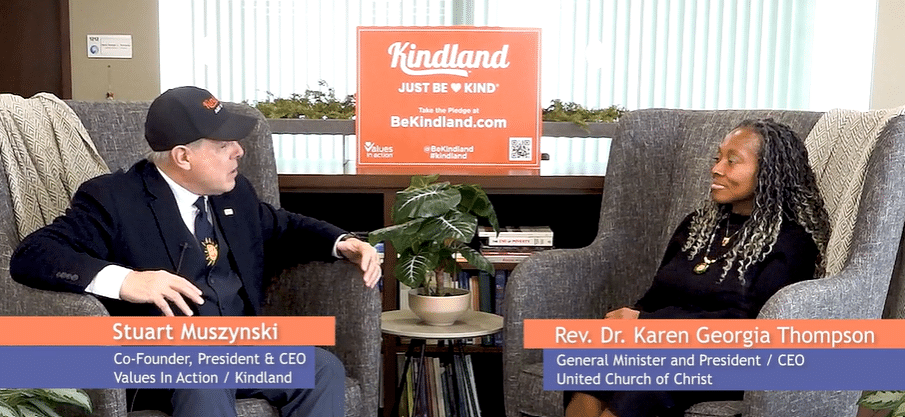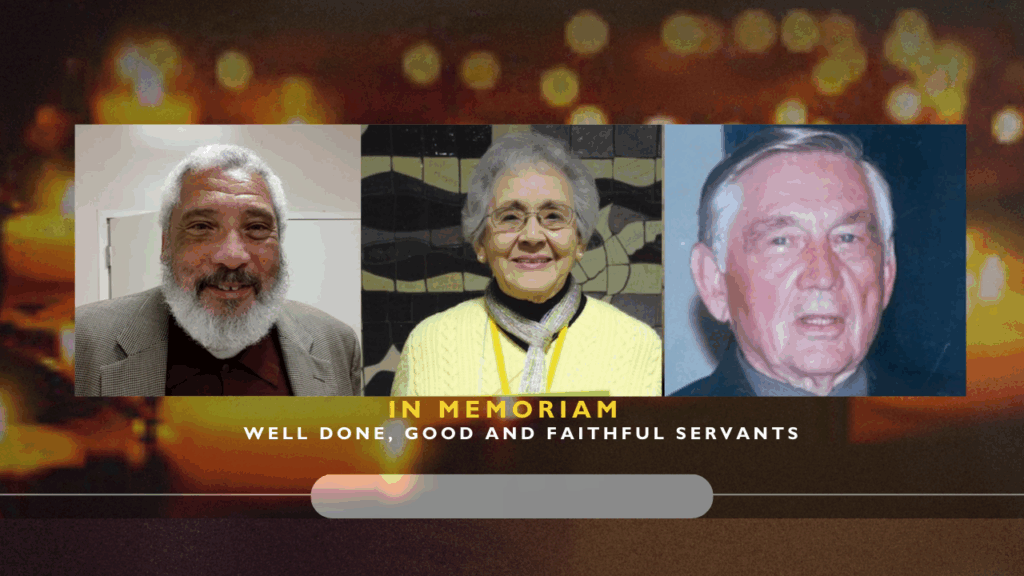UCC joins calls for peaceful protests after non-indictment of Ferguson officer
Now, more than ever, peace in Ferguson will be put to the test.
A St. Louis grand jury late Monday, Nov. 24, chose not to indict Ferguson police officer Darren Wilson for the fatal shooting of 18-year old Michael Brown in August. As the decision was announced, the voices from across the United Church of Christ joined others throughout in the Christian community in sending prayers and calling for peace to surround the Ferguson community.
The grand jury, which had deliberated the evidence since Aug. 20, found no probable cause to indict Wilson, a white officer, for shooting Brown, an unarmed black teenager.
“We waited with prayerful anticipation and hoped the grand jury saw the great need for this case to go to trial,” said the Rev. Waltrina Middleton, UCC national minister for youth advocacy and leadership formation, who has spent time in Ferguson working with advocacy groups calling for justice. “We prayed for that decision, and now we pray for peaceful demonstrations.”
Brown’s death on Aug. 9 ignited protests and riots around the St. Louis area. Tensions remained high all last week in anticipation of the grand jury decision, with fears from both the public and law enforcement that protests would turn violent if Wilson was not indicted.
Missouri Governor Jay Nixon issued a state of emergency on Monday, Nov. 17, activating the National Guard for the “possibility” of unrest.
“There is an outcry from our youth to recognize their humanity and to say the killing of one is wrong. We are talking about human life,” Middleton said. “Every youth has a right to live without the fear of being profiled or murdered. Every youth should be able to walk down their community’s streets and make it home without fear of dying.”
Just a week ago, several national leaders of the church were in Ferguson for the National Council of Churches governing board gathering, calling for peace when the decision was announced. The NCC has issued a statement expressing disappointment in the grand jury’s action, but also advocating peace and solidarity from the Christian community, to stand with Ferguson.
“Without an indictment it now seems unlikely that justice will be done,” the NCC statement read. “Nevertheless, we reiterate our call in this time of serious tension for the city of Ferguson and its citizens, law enforcement officials, justice-seekers, and others to respond in a nonviolent manner. We join with Michael Brown’s father’s plea that protests not become violent.”
“All hope is not lost. We will not forget Michael Brown nor cease to advocate for justice to be carried out in the matter of his death,” the statement continues. “His death has helped galvanize across the country a moral will to address the crisis our country faces in the systemic marginalization of young men of color.”
In response to the St. Louis grand jury decision, UCC General Minister and President the Rev. Geoffrey A. Black is calling for “a renewed commitment to advocacy and action, to deepening racial awareness by engaging in sacred conversation, and to truthfully examining, then dismantling, the systems of privelage set in place by racism.”
Local clergy were active in the aftermath of the shooting in trying to bring closure and healing to the St. Louis area. Now they will open their doors once again, making their buildings into “safe spaces” to support non-violent free speech after the grand jury decision. Of the 10 area churches whose doors will be open 24 hours, four are UCC congregations and two others are part of the Christian Church (Disciples of Christ).
UCC minister the Rev. Traci Blackmon, pastor of Christ the King UCC in Florissant, one of the “safe spaces”, posed a little-asked a question to her members. “Will you pray for Officer Darren Wilson?” she said on Sunday, a day after leading a vigil for people calling for Wilson’s arrest.
“Will you pray for his family?” Blackmon asked. “Because their lives will never be the same.”
An indictment by a grand jury is not the same as a guilty verdict, but rather an indication that there is enough evidence to charge someone and bring that person to trial. What makes the St. Louis grand jury decision so rare is that 1 in every 11,000 cases that go to a grand jury do not come back with an indictment. In 2010, according to the U.S. Department of Justice, U.S. attorneys prosecuted 162,000 federal cases, and grand juries didn’t come back with an indictment in 11 of them.
“We will continue to remain advocates in solidarity with these young leaders because this movement does not end with the grand jury’s decision,” Middleton said. “This movement is about recognizing the value of all human lives, affirming our youth and their visionary leadership, and addressing the systemic roots of a disheartening culture of violence in our society.”
Related News
Liberating Women
There is a history of women’s movements in the United States and around the world. Over the...
Read MoreUCC-Kindland partnership highlighted in video featuring Rev. Karen Georgia Thompson and Values in Action founder Stuart Muszynski
Kindness is inherent when it comes to creating a "just world for all," was part of the message...
Read MoreUCC remembers three pillars of faith and justice
Nestled in the pages of the Pilgrim Hymnal is a song praising the saints of God who “toiled...
Read More

